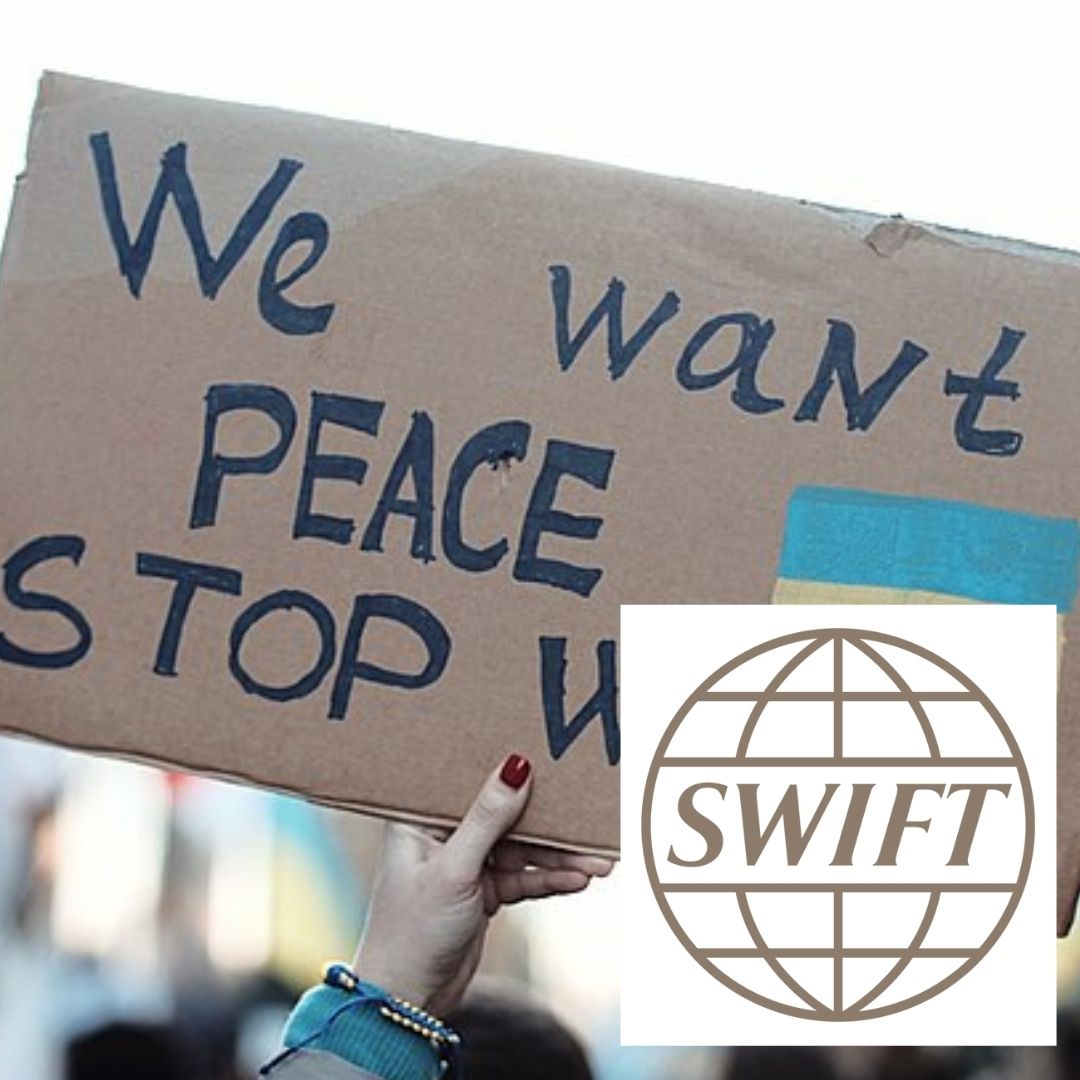
Image Credits: Wikimedia, Wikimedia
How Expulsion From 'SWIFT' Will Hurt Russia's Economic Interests?
Writer: Akanksha Saxena
I am a budding journalist who loves to write stories that have the ability to connect with people.
Others/World, 28 Feb 2022 12:19 PM GMT
Editor : Ankita Singh |
A literature lover who likes delving deeper into a wide range of societal issues and expresses her opinions about the same. Keeps looking for best-read recommendations while enjoying her coffee and tea.
Creatives : Akanksha Saxena
I am a budding journalist who loves to write stories that have the ability to connect with people.
'SWIFT' stands for Society for Worldwide Interbank Financial Telecommunication, a platform that makes it easier to transfer money across borders. The Western countries aim to expel some Russian banks to impact the country's economy.
The ongoing crisis between Russia and Ukraine has divided the world into two factions. A majority of the countries are standing with the latter, condemning Vladimir Putin for invading a sovereign nation and putting innocent lives at risk. To avoid violent repercussions, the West has come together and worked out ways to prevent war with Russia at any cost.
One of them is economic sanctions. The United States has joined hands with the European Union and the United Kingdom to expel some Russian banks from the 'SWIFT' system. BBC reports that the aim behind this sanction is to "ensure that these banks are disconnected from the international financial system and harm their ability to operate globally."
'SWIFT' Explained
'SWIFT' is an abbreviation of 'Society For Worldwide Interbank Financial Telecommunication'. For the unversed, it is a platform that provides information about global money transfer and ensures that it takes place without any hurdles across borders. It acts like an intermediary who sends messages to the concerned parties, informing them about the necessary transaction.
The system was founded in 1973 in Belgium, where its headquarters is situated even today. It imparts services to over 11,000 banks globally based in 200 countries and is overseen by the National Bank of Belgium. Its partners include several Central banks, including the US Federal Reserve, Bank of England, and others in France, Canada, Germany, Italy, Japan, the Netherlands, Sweden and Switzerland. In 2014, it launched its joint venture in India to target the Indian audience and access its services.
Adverse Impact On Economy
Many may wonder about the rationale behind expelling Russian banks from the messaging service. Some may even find it a futile endeavour. However, in the scheme of things, the sanction will hurt Russia's economic structure in a mammoth way. The expulsion could paralyse the country. As per reports, the aim is to cripple the economy by cutting their access to a smooth-sailing transaction system. In light of this, Russia may have to resort to old school methods to make sure that all their expenses are met.
In the words of Ursula von der Leyen, European Commission president, the move will freeze all of Russia's assets, making it impossible for the Kremlin to use the money for the ongoing war. "There is going to be a catastrophe on the Russian currency market on Monday," The Indian Express quotes Sergei Aleksasheko, former deputy chairman of the Russian Central Bank. The country's former finance minister, Alexei Kudrin, stated that this would shrink Russia's economy by 5%
The sanction's effects are already showing, with the Russian ruble plummeting to a record low rate. Bloomberg states that it hit an all-time low of 109 per dollar and lost a third of its value in many offshore markets. As a result, investors in the country are now banking upon the US dollar and yen. This is proving to be a debacle for the ordinary Russians, whose savings are on the line.
Despite this, the 'SWIFT' sanction may not be as easy to impose. The Russian government prepared an alternative system called 'Mir', a national payment card system, but only a few globally use it. Not only that, it can find another route for its expenditure that involves countries that have not imposed any sanctions on them, such as China.
However, some countries are also hesitant to implement this. Countries like Germany, France, and Italy are reluctant about it as it will negatively impact their imports. Russia is the prime provider of natural gas and oil for the European Union. Even for India, such sanctions will affect the economy as the economic activities between the countries will be hampered at any cost.
Also Read: A Tightrope Walk! India's 'Mature' Diplomacy Over Russia-Ukraine Crisis Holds Grave Consequences
 All section
All section














